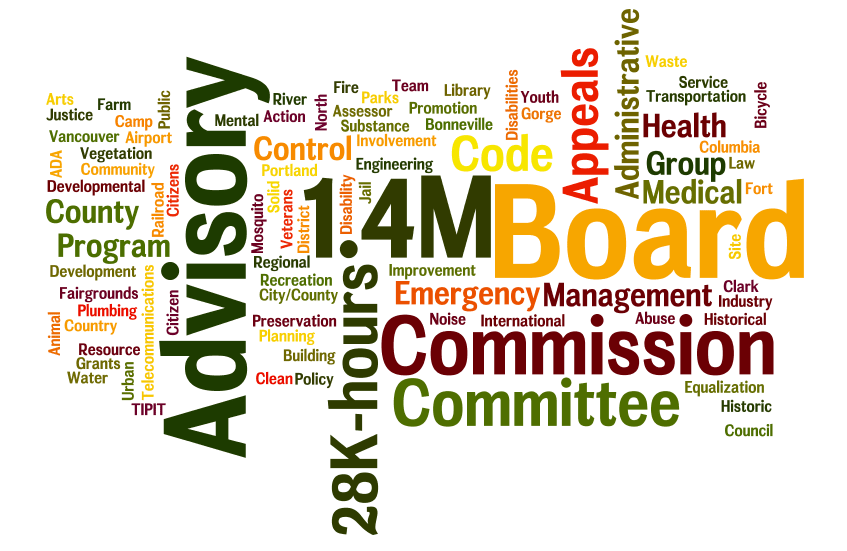At the Feb. 7 Board of Clark County Commissioners meeting, giddy members of the Aging Readiness Task Force celebrated the approval of the Clark County Aging Readiness Plan and encouraged commissioners to let them form a Clark County Commission on Aging.
Buoyed by their work on the task force, the volunteers wanted to keep doing their part to help implement a plan for accommodating the “silver tsunami” of Baby Boomers.
Sure! commissioners said. Why not? The county already has a youth commission, Commissioner Steve Stuart said. Why not a commission for non-youth?
On Feb. 8, commissioners heard one reason why not.
During a work session on the county’s “reconfiguration” efforts to bring revenues in line with expenses, commissioners were reminded that while enthusiastic volunteers might want to put in their time for free, there’s still a cost.
Environmental Services Director Kevin Gray and Karen Streeter, an Environmental Services manager, gave a presentation titled: “Evaluating Functionality and Effectiveness of Commissions, Advisory Boards and Technical Advisory Committees.”
Gray and Streeter are on a team of eight county employees tasked to identify regulatory processes that, if adjusted, could save the county significant money.
Within just five county departments — Environmental Services, Community Development, Community Planning, Community Services and Public Works — there are more than 50 active task forces, commissions and advisory boards.
Gray said it costs an estimated $1.4 million a year to host these meetings. He said that figure includes roughly 28,000 hours of staff time, including prep time and post-meeting work.
Some, such as the Solid Waste Advisory Commission, Animal Control Board and the Planning Commission, are mandated by state or county code; others the county voluntarily convenes (a new Clark County Commission on Aging would fall in this group).
Some groups were created within recent memory to elicit community feedback on specific concerns (examples include the Development and Engineering Advisory Board, Camp Bonneville Advisory Group and the Bicycle Advisory Committee.)
Other groups were started a few decades ago “and they are still plugging along,” Streeter said.
Some meetings are well attended and result in valuable feedback; others, not so much.
“All of them require county staff time and money,” Streeter said.
Editor’s Note: This story was first published Feb. 12. For the full story and comments see County to trim advisory boards.




